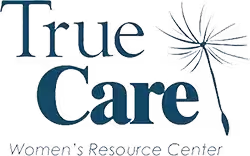Trying to understand the ins and outs of fertility and pregnancy can be confusing. If you’re unsure when you’re most likely to get pregnant, getting the facts will provide clarity and help you make thoughtful decisions for your future.
True Care Women’s Resource Center will answer your questions about fertility, sexual health, and more. Keep reading to learn about how processes like ovulation impact your chances of getting pregnant.
Ovulation is the Answer
You are most likely to get pregnant when sperm are present in the fallopian tubes during ovulation. Ovulation is the process by which an ovary releases an egg. After its release, the egg can be fertilized for around 12-24 hours (though sperm can live inside the reproductive tract for about 3-5 days after sexual intercourse).
Additionally, if you have sexual intercourse from 3-4 days before ovulation to one day after ovulation, you’ll be more likely to get pregnant.
How Do I Know When Ovulation is Occurring?
Being aware of your body and its processes can help you detect unusual changes and better understand your reproductive system. Ovulation can be difficult to detect if you don’t know what you’re looking for, so we’ll provide clarity.
There are several ways to identify when you’re ovulating, including:
- Monitoring physical changes in vaginal discharge and body temperature (thin, clear, stretchy discharge, similar to raw egg whites, and a higher basal body temperature can signal ovulation)
- Using a period tracker app. Many apps have ovulation trackers as well. If your period is regular and occurs every 28 days, ovulation will likely occur around day 14 from the first day of your last period. If your cycle varies and is longer or shorter than 28 days, then a period tracker app can help you determine when you are most likely to ovulate based on how long your cycle lasts each month.
- Using a home ovulation test kit to detect the rise in hormones before ovulation
It’s natural to have questions about ovulation and pregnancy. Whether you’d like to become pregnant or want to know more about abstaining from sexual intercourse during ovulation, a trusted healthcare provider can address any confusion and assess your personal health.
True Care Women’s Resource Center staff can answer your pregnancy-related questions in a confidential environment. Resources are available.
Make a No-Cost Appointment
We’re ready to help. Know that support is available to help you better understand your pregnancy and health. We also have a sexual risk avoidance program to help you understand more about your fertility, sexual health, and STD and pregnancy prevention.
If you think you’re pregnant, we’ll help you confirm your pregnancy with testing and limited OB ultrasound. Getting answers is closer than you might think!
